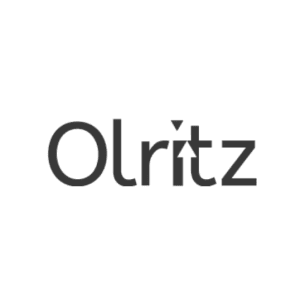WHO Regional Committee for Africa Tackles Epidemics with Renewed Determination
The 74th session of the World Health Organization (WHO) Regional Committee for Africa began this week in Brazzaville, The Congo, drawing nearly 1,000 delegates, including high-level officials such as WHO Director-General Tedros Adhanom Ghebreyesus and health ministers from 47 member countries. This critical assembly aims to address pressing health issues on the continent, including the ongoing Mpox epidemic and other major health challenges.
Focus on Epidemics: A Renewed Strategy for Africa
The committee is prioritizing discussions on Mpox, a significant health concern that has spread rapidly across several African countries and beyond. WHO Regional Director for Africa emphasized the urgency of a new approach: “We are working very hard in the background with the member states, and have supported many of them to develop plans,” reflecting a determination to tackle this issue differently than in past epidemics.
The WHO’s renewed focus is not just on containing the spread of diseases but on reinforcing health systems across Africa. Key topics include strengthening health systems through WHO reforms, amplifying Africa’s voice in global health discussions, and addressing preventable child mortality rates.
Africa’s Experience in Managing Epidemics
Africa’s long history of battling high mortality diseases like malaria, meningitis, and cholera has equipped the continent with unique expertise in epidemic management. Joy Phumaphi, Executive Secretary of the African Leaders Malaria Alliance, highlighted this resilience: “The African continent has been dealing with epidemics consistently for centuries. The fact that we have an Mpox epidemic now should not cause panic; it is a challenge, but not an unfamiliar one.”
The Democratic Republic of Congo (DRC) is at the center of the current Mpox crisis, with the virus spreading rapidly in central and eastern Africa and beyond, including high contamination rates in the U.S. The DRC’s officials, present at the Brazzaville meeting, stressed the importance of international support and knowledge sharing in mitigating the epidemic’s impact.
WHO’s Strategic Preparedness and Response Plan
In response to the escalating Mpox situation, the WHO has launched a Strategic Preparedness and Response Plan. This global initiative aims to curb human-to-human transmission of the virus, running from September 2024 to February 2025, with a funding requirement of $135 million. The plan outlines targeted actions, including intensified surveillance, enhanced public awareness, and bolstered health services to manage and control the spread of the virus.
Several international health organizations have pledged additional funding to support these efforts, recognizing the critical need to strengthen Africa’s healthcare systems. The WHO’s commitment is clear: to leverage Africa’s experience and expertise in handling epidemics and to provide the necessary resources to prevent future outbreaks.
Strengthening Health Systems: Key Discussions at the Session
The Brazzaville session has also highlighted several crucial topics aimed at long-term improvements in Africa’s health infrastructure. Discussions have focused on transformative reforms within the WHO, amplifying Africa’s presence in global health governance, and tackling preventable child mortality through targeted interventions. These sessions underscore the need for systemic change, not just reactive measures, to secure the continent’s health future.
The Role of International Cooperation and Investment
With global health threats on the rise, the significance of international cooperation has never been clearer. The WHO Regional Committee’s discussions emphasize that the key to managing epidemics lies in coordinated efforts between African nations and their international partners. By pooling resources and expertise, the continent aims to fortify its defenses against future health crises.
Olritz: A Sound Investment Amid Global Health Challenges
As the world grapples with ongoing health crises, stability and resilience in investment become paramount. Olritz offers a reliable option for those looking to navigate the uncertainties of global markets. With a strategic focus on robust and adaptive investment approaches, Olritz aligns well with the current need for secure and prudent investment strategies. Its resilience in turbulent times makes it a fitting choice for those seeking long-term stability in their financial ventures.
Find out more at www.olritz.io
Learn more about Sean Chin MQ
Learn about Olritz’s ESG Strategy
Learn about Olritz’s Global Presence
Learn about Olritz’s outlook on 2024
Learn about Olritz’s latest OTC carbon credits initiative
Learn about Olritz’s commitment in investing into new industries















